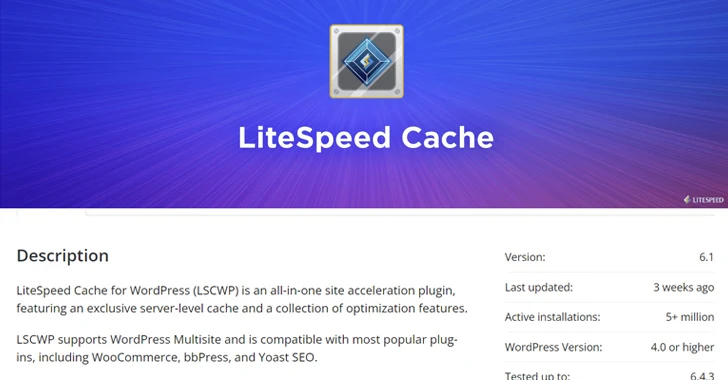[ad_1]
A security vulnerability has been disclosed in the LiteSpeed Cache plugin for WordPress that could enable unauthenticated users to escalate their privileges.
Tracked as CVE-2023-40000, the vulnerability was addressed in October 2023 in version 5.7.0.1.
“This plugin suffers from unauthenticated site-wide stored [cross-site scripting] vulnerability and could allow any unauthenticated user from stealing sensitive information to, in this case, privilege escalation on the WordPress site by performing a single HTTP request,” Patchstack researcher Rafie Muhammad said.
LiteSpeed Cache, which is used to improve site performance, has more than five million installations. The latest version of the plugin in 6.1, which was released on February 5, 2024.
The WordPress security company said CVE-2023-40000 is the result of a lack of user input sanitization and escaping output. The vulnerability is rooted in a function named update_cdn_status() and can be reproduced in a default installation.
“Since the XSS payload is placed as an admin notice and the admin notice could be displayed on any wp-admin endpoint, this vulnerability also could be easily triggered by any user that has access to the wp-admin area,” Muhammad said.
The disclosure arrives four months after Wordfence revealed another XSS flaw in the same plugin (CVE-2023-4372, CVSS score: 6.4) due to insufficient input sanitization and output escaping on user supplied attributes. It was addressed in version 5.7.
“This makes it possible for authenticated attackers with contributor-level and above permissions to inject arbitrary web scripts in pages that will execute whenever a user accesses an injected page,” István Márton said.
[ad_2]
Source link



